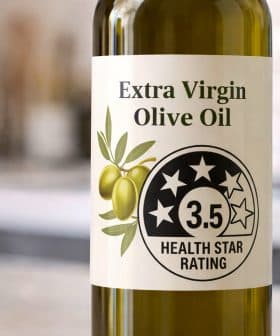7 Superfoods that Can Reduce Your Risk of Stroke
Seven everyday foods and beverages have been found to lower the risk of stroke in large-scale population studies.
Stroke is a major cause of death and disability in the US. Seven everyday foods and beverages, including tomatoes, avocados, olive oil, fish, coffee, chocolate, and wine, have been found to lower the risk of stroke in large-scale population studies, with each offering unique health benefits. In addition to consuming these foods, it is important to manage major risk factors such as high blood pressure, smoking, weight, and physical inactivity to further reduce the chances of having a stroke.
Stroke is the third-leading cause of death in the United States and the leading cause of long-term disability. A stroke occurs when a blood vessel carrying nutrients and oxygen to the brain is either blocked by a clot (ischemic stroke) or ruptures (hemorrhagic stroke). Many lifestyle factors, including nutrition, can affect your chances of suffering from a “brain attack.” Here are seven everyday foods and beverages that have been found to lower the risk of stroke in large-scale population studies. You may be pleasantly surprised by some of the items on the list.
Tomatoes
Tomatoes are the richest source of a carotenoid called lycopene. This powerful antioxidant helps to reduce the formation of plaque in the arteries, which can lead to strokes. In a Finnish study published in the journal Neurology, 1,031 men aged 46 to 65 were given blood tests and followed up for an average of 12 years. The men with the highest lycopene levels in their blood were 59 percent less likely to have a stroke due to blood clots and 55 percent less likely to have any type of stroke, compared to those with the lowest levels.
Avocados
Potassium-rich foods like avocados, sweet potatoes, and bananas could cut the risk of strokes in post-menopausal women. Researchers from the Albert Einstein College of Medicine in New York followed 90,137 women ages 50 to 79 for an average of 11 years. Women with the most potassium in their diet were 16 percent less likely to have a stroke caused by a blood clot and 12 percent less likely to suffer from a stroke in general, compared to the group who consumed the lowest amounts of potassium. An average-size avocado provides 28 percent of the recommended daily allowance of potassium.
Olive Oil
Olive oil may reduce the risk of stroke by protecting against conditions such as high blood pressure and high cholesterol. Researchers at the University of Bordeaux in France asked 7,625 people 65 years and older how often they used olive oil in cooking or as a condiment. They then followed up data from the participants’ medical records over the course of five years. Stroke risk was 41 percent lower in people who used olive oil regularly, compared to those who never used it. The researchers note that to protect against stroke, olive oil should be used as an alternative to other vegetable oils.
Fish
The omega‑3, selenium, vitamin D, and certain types of proteins in fish could help protect against stroke. An international analysis published in the journal Stroke combined data from 15 studies conducted in the US, Europe, China, and Japan. In total, approximately 400,000 people from 30 to 103 years old were asked how frequently they ate fish, then followed for up to 30 years to see who suffered a stroke. The people who ate the most fish were 12 percent less likely to have a stroke than those who ate the least. However, this benefit was not seen in those who ate more fried fish and fish sandwiches.
Coffee
Coffee may lower stroke risk by reducing inflammation and making the cells more sensitive to insulin. A Swedish study collected data on the coffee drinking habits of 34,670 women ages 49 to 83 and followed them up for an average of 10 years. Those who drank one to five cups of coffee a day had a 22 percent to 25 percent lower risk for stroke, compared w to those who drank less than one cup of coffee a day on average. The protective benefits of coffee were not influenced by stroke risk factors such as smoking, obesity, and high blood pressure.
Chocolate
Two bars of chocolate per day might reduce your risk for cardiovascular events such as heart attack and stroke. Researchers at the University of Aberdeen in Scotland collected data on the snacking habits of 21,000 people during a 12-year study. They found that those who ate up to 3.5 ounces of chocolate every day had a 23 percent lower risk of suffering a stroke and 25 percent lower risk of dying from heart disease. Flavonoids and other compounds in chocolate may have a protective effect.
A Glass of Wine
Moderate alcohol consumption may help to prevent the formation of blood clots and arterial plaques. Researchers from the Brigham and Women’s Hospital in Boston analyzed data from 83,578 women who were 30 to 55 years old at the start of the study. Participants provided information about their drinking habits every four years for up to 30 years. Those who consumed an average of ½ to 1½ alcoholic drinks a day had a 17 percent to 21 percent lower risk of stroke than those who abstained. Women who consumed an average of two to three drinks daily had a slightly decreased risk for hemorrhagic stroke, but an increased risk for ischemic stroke.
In addition to eating a healthy diet, you can further reduce your chances of having a stroke by being aware of the major risk factors and making the appropriate lifestyle changes. Get your blood pressure checked on a regular basis and take steps to control it if necessary. If you smoke, quit. Watch your weight and aim for at least 30 minutes of physical activity each day.









